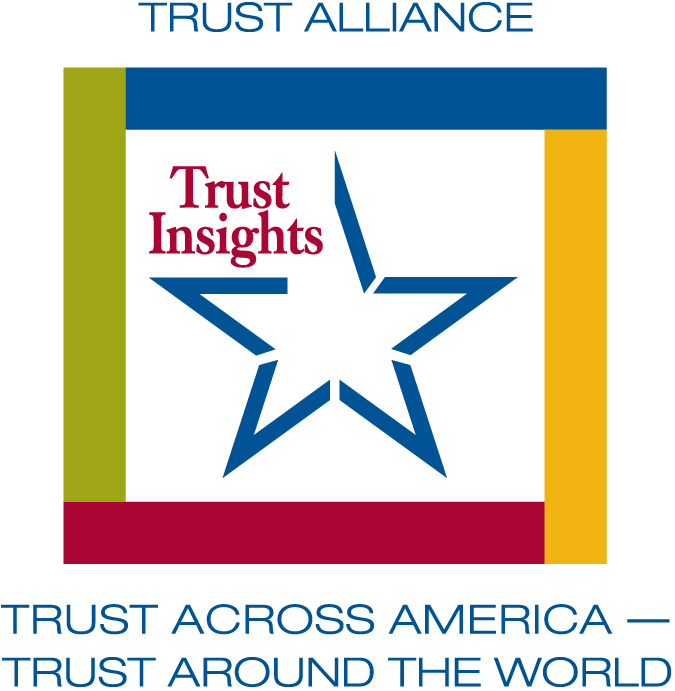 Walt, thank you for participating in our 2020 Trust Insights series. What is your trust insight?
Walt, thank you for participating in our 2020 Trust Insights series. What is your trust insight?
Real leadership starts by building trust; without trust, you have no platform from which to build positive influence with others. Walt Rakowich
Can you expand a bit on this important insight?
The best leaders influence others to do great things. Trust isn’t the only factor involved in building that type of influence, but it is an essential factor – perhaps the most essential. You can achieve short-term successes and positive results without trust. But you can’t do great things for yourself or for others over the long haul unless you trust yourself, trust others, and earn the trust of those you lead. If trust is lacking, success will be fleeting. When you have genuine trust, on the other hand, people willingly follow you and collaborate with you on a shared purpose. Things like commitment, risk-taking, accountability, productivity, and excellence fall more naturally into place.
You earn that trust over time by opening a window into your soul and showing yourself to be someone worth following. I learned in the heat of battle while turning around a Fortune 500 company that three virtues are essential to earning trust – humility, honesty, and heart. Humility comes when we look inward at who we really are. Heart comes when we look outward and value people for who they are, not just what they can do. And honesty requires that our actions align with what we say and with our values. When people see those virtues in the actions of a leader, they know their trust is well-placed. Combine that with a purpose and a passion for serving others, and great things aren’t just likely, they are inevitable.
Can you provide a real life example of a trust “challenge” where your insight has been effectively applied.
I was named CEO of Prologis in the middle of the Great Recession and when the company was on the brink of bankruptcy. As we began to rebuild, we knew there were problems involving trust. One of the first things we did as a leadership team was commit to owning our mistakes and to learning from them. We were open with our employees and our investors about those mistakes and the challenges we faced moving forward. But here’s what we didn’t do. We didn’t ask our employees or our investors to trust us. In fact, during a meeting in New York with more than a thousand investors and stakeholders, we outlined our mistakes and committed to some specific ways we planned to restore the company to health. Then we told them this: “Don’t trust us. Watch us.” Trust has to be earned, not assumed. We embraced that idea. If we couldn’t earn it, we didn’t deserve it. We made that very clear to each other, our employees, and our investors. I believe because we set that as a standard, we settled for nothing less and achieved it over time.
Many claim we have a crisis of trust. Do you agree?
There are plenty of reasons to be discouraged about the condition of the world, but also plenty of reasons to have hope for the future. You can look at the environment of politics, sports, business, entertainment—whatever—and find examples of leaders who have abused trust and created cultures devoid of trust. Where was trust in the Volkswagen emissions scandal? Or pick any other scandal going back to the beginning of time. On the other hand, many emerging leaders have shown a great desire to work together and to make their work about something that’s bigger than themselves. The bad stuff draws the headlines and the Internet memes, but you don’t have to look far to find leaders who are transparent and honest and humble and who truly want to do the right things for people and society. I choose to trust that these are the leaders who will win the day.
Walt, thank you so much for your time and more importantly for your commitment to elevating organizational trust. What would you like our audience to know about you?
Walt Rakowich is an author, speaker and the former CEO of Prologis, one of the top global real estate companies in the S&P 500. He was named CEO in 2008 during the economic downturn when the company was near bankruptcy. He implemented a change in culture through transparency, orchestrating a dramatic turnaround and restoring its position in the industry. Walt has a BS in accounting from Penn State and an MBA from Harvard Business School. In addition to speaking to audiences on a range of leadership topics, he serves on a number of corporate and philanthropic boards. He and his wife Sue have two children and reside in Colorado.
And before you leave, Tap Into Trust and complete our 1 minute/1 question quiz. Find out how the level of trust in your workplace compares to hundreds of others.
Did you miss our previous 2020 insights? Access them at this link.
Contact us for more information on elevating trust on your team or in your organization.
Copyright 2020, Next Decade, Inc.

Recent Comments